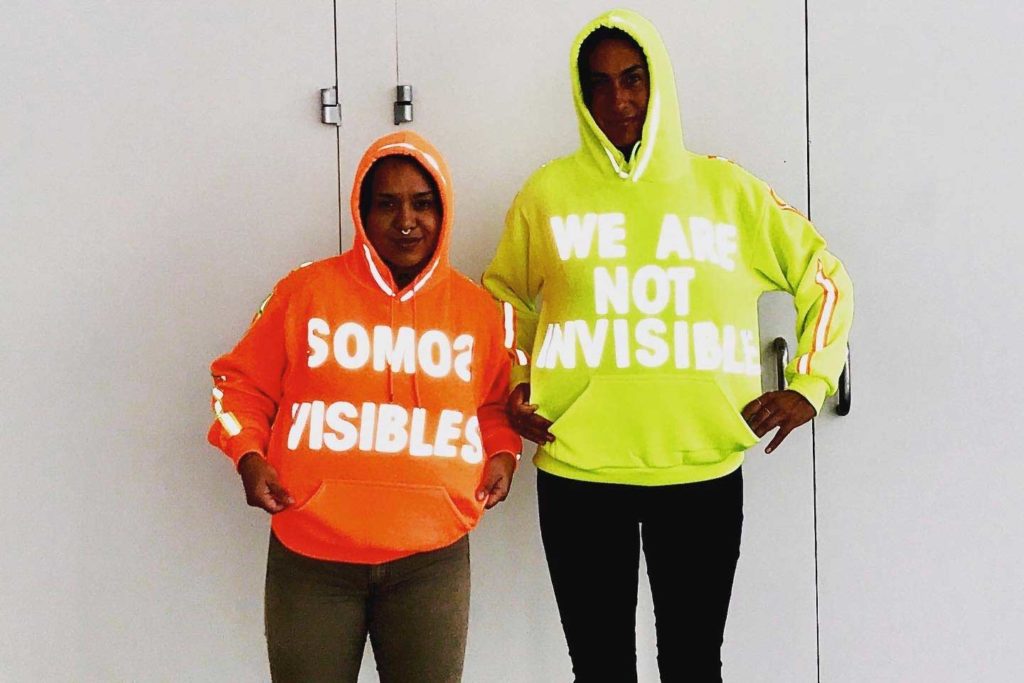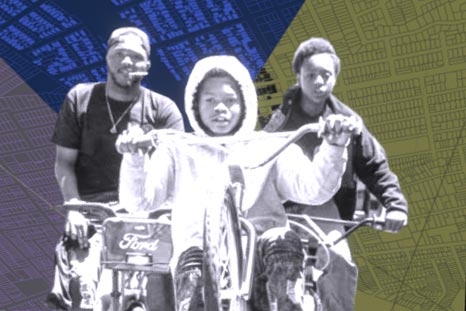Sat July 5th Open 11 AM–5 PM
Subverting Visibility: Arleene Correa Valencia & Ana Teresa Fernandez in Conversation, Part 2
Creating Community Action
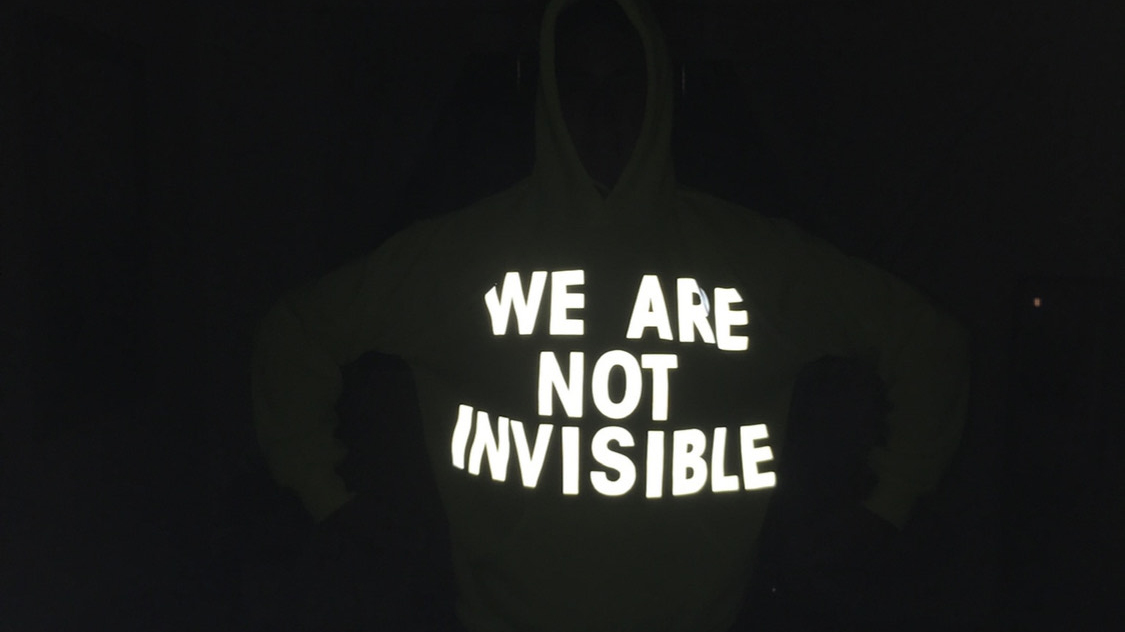
This article is part of the ongoing Come to Your Census: Who Counts in America? experience. This collaboration with Art+Action is part of their COME TO YOUR CENSUS campaign—powered by San Francisco’s Office of Civic Engagement and Immigrant Affairs (OCEIA)—which hopes to mobilize the public to take the 2020 U.S. Census. We want everyone to be counted and receive their fair share of funding and political representation for their community.
If you have not already done so, we highly encourage you to take the 2020 U.S. Census.
Featured in YBCA’s art and civic experience Come to Your Census: Who Counts in America?, SOMOS VISIBLES—commissioned by Art+Action as part it it’s COME TO YOUR CENSUS campaign, with the generous support of Levi’s—is a collaborative artwork by artists Arleene Correa Valencia and Ana Teresa Fernández. This ongoing project takes a political stance on visibility through the use of high visibility ready-to-wear safety gear present throughout many labor industries.
YBCA Curatorial Project Manager Fiona Ball sat down with Correa Valencia and Fernández, on April 1, 2020 to discuss the history of their collaboration, the importance of visibility, and how they are caring for themselves in uncertain times.
The interview has been edited for clarity.
FB: Now that COVID-19 has brought us to the point where we can barely see each other because of social distancing and self-isolation, how do you two think that folks can remain visible through the crisis?
ACV: Well, for me, that’s a really complicated question, because I’ve been having this conversation with my family and talking out of the whole pandemic, does it really feel any different than being undocumented? There’s so much overlap in how much you have to protect yourself, and not being able to see your family, being removed, being unsafe, not knowing when and if this thing is coming, right? So it’s a weird time for me, because the connections are so similar that it doesn’t feel like a completely new experience. Does that make sense?
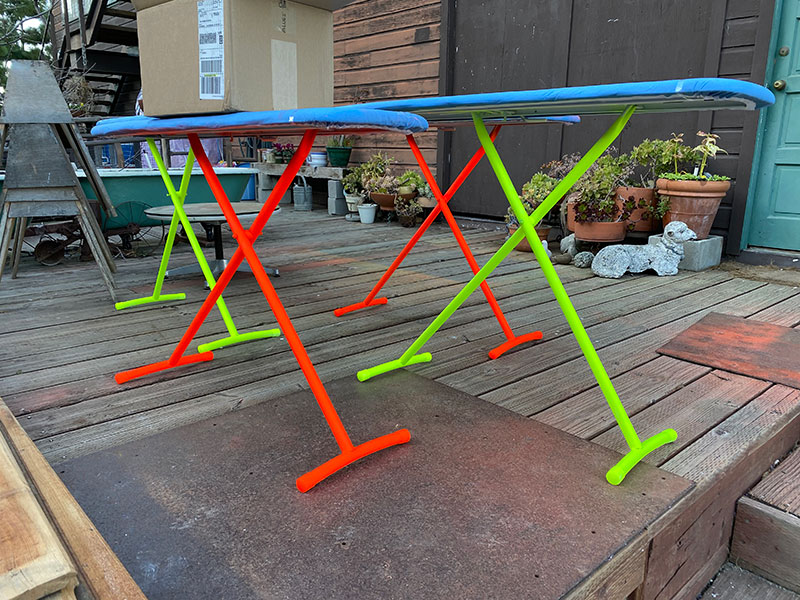
ATF: Yeah, it feels like it’s getting people’s skin in the game. Everyone’s being put in a situation where there is a threat of uncertainty, and I cannot see a much more parallel situation. Being introduced to kind of a similar feeling of being undocumented, so people can have a more profound understanding of how complex and how incredibly terrifying it must be to be from that sector of the community.
ACV: I think there’s also something about just being in this moment that is important for me. So yes, there is a need to stay connected, and we’re so incredibly lucky that we even have internet, and that we have access to social media, and that we can talk to each other on the phone, and that we can have meetings, and we can continue school, and we can work around our circumstances, but there’s also something beautiful about being in this moment and knowing that we are distant, and that we are trying to protect ourselves. Maybe in this moment, maybe it’s not so much about being visible in the way that the sweatshirts are, like super visual, but maybe it’s about just being visible and being connected to people in the safety of your home.
There’s a different type of visibility that is happening now where we are visually seeing the effects of our community and how we can come together to actually make change really quickly. And other scenarios where we talk about, “Oh, how are we going to fund this? How are we going to do that? That’s going to take years for everyone to get with the flow of this.” It’s like overnight, we have come together. We have been able to work together. We are funding certain things. There’s help for all sorts of people. So really appreciating that and being in that is really important.
ATF: Well said, Arleene.
FB: How are either of you feeling like you’re still connected to being politically engaged? Or how would you recommend others stay politically engaged right now?
ACV: I’ve been making an effort every day to put together resources. Obviously I really care about undocumented people in the wine and restaurant industry in Napa. So I’ve been making a huge effort to put together all the resources that there are in Napa county and just sending them out to people I know and people that I know are servers in restaurants and saying, “Hey, can you send this out to all your coworkers, whether you know that they’re undocumented or not? These are the resources that they can apply for, or call this number, or send it to everyone you know on your contact list,” because you never really know who it can help.
So I feel like that’s been my effort. It’s a little bit overwhelming, but being at home and knowing that there’s nothing else to do. There’s also our artist responsibility, I call it. I’ve obviously made this work for a long time now, and I’m really engaged with my community, and I really care about the social aspect of my work. So now is the time to do the actual work and to be connecting people and to be making the phone calls and to be active instead of not doing anything.
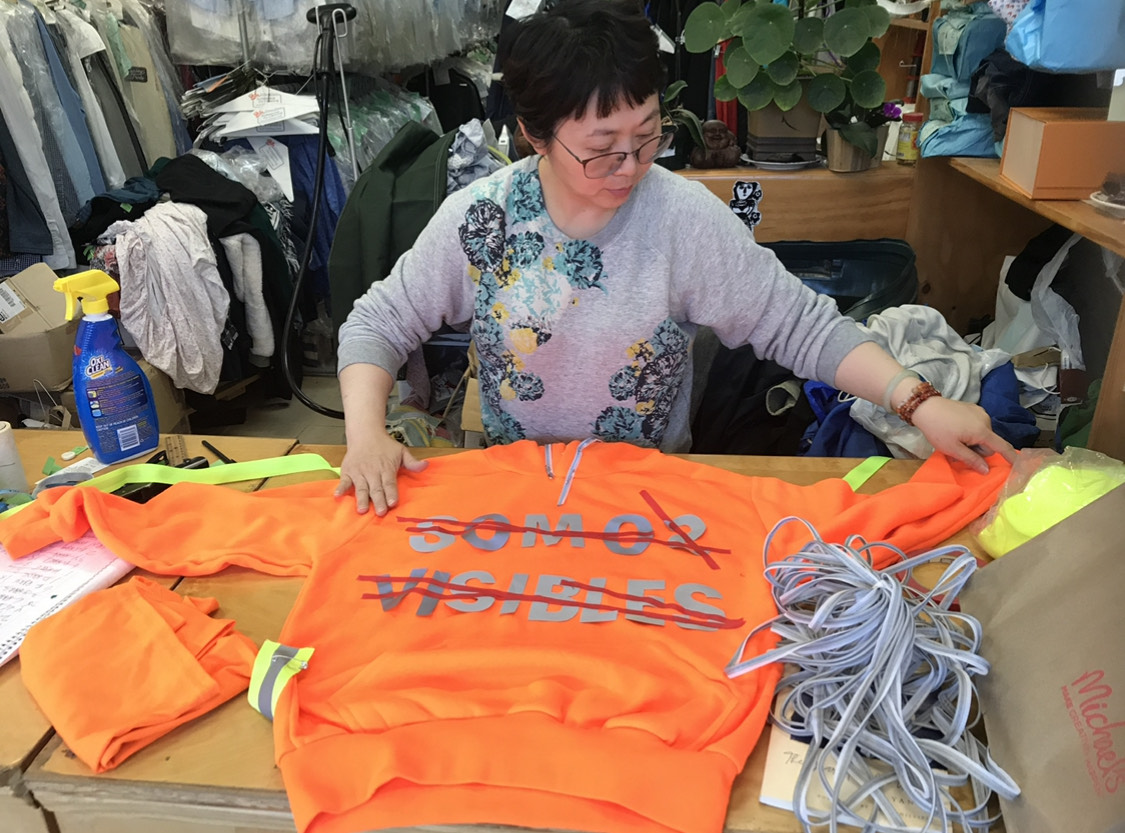
ATF: That’s awesome, Arleene.
ACV: Thank you.
ATF: To be honest, I think I took the first two weeks to just kind of take a step back. I feel like in the last, I don’t know how many years, my life has been really chaotic. So for me, it was kind of like a way to slow down actually. I’ve been really kind of aware of online who’s been posting things for sale, like who is selling work and stuff like that, and trying to be really putting my resources to good use. Just trying to kind of participate, in a way, and kind of going back into my work, in my own work, and just seeing what really I feel like I need to do next.
But more than anything, I think I just kind of took a break. Between the census, Creativity Explored, and I have three other projects going on at the same time that I feel like it kind of came at a time where I really needed a respite, just because I feel like I was starting to get a little bit overwhelmed. So I think that for me, it’s like I took a little bit of a step back and just tried to regain my strengths so I can see where I can better put my skills to use.
I’ve been also trying to reach out to other women to keep that sweatshirt project going, to get those, especially in the healthcare field. So I’ve been reaching out to different doctors and nurses and asking them for quotes and for sweatshirts. So that’s kind of being a little bit more on a kind of simpler scale for me to get them motivated, and giving them something as a thank you note.
FB: Is there anything else that you would like to share about the project or whatever else you’re working on with the YBCA audience?
ATF: Part of the community engagement that was going to be super quirky and fun was to switch around the idea of the Mexican domesticity. Part of the engagement was going to have Arleene and I have an ironing board and have workers at various work sites actually iron on the vinyl. It’s kind of really switching that role of how we see Mexican men or Mexican women in the household, but seeing the ironing board outside on a work site with construction men ironing. I was really looking forward to that and having those interventions happen in the public sphere, especially at work sites.
So I still hope that we can do that beyond just kind of the curated display at the flea market or at YBCA, but really drive around with Arleene, kind of throw the materials in the back of the car and drive around with ironing board and go to different sites and do that with the construction workers. I think it’d be pretty bad-ass to see them ironing them.
ACV: If anything, I just hope that this sweatshirt becomes an incentive for people to count themselves in the census, because this project has taught me the importance of being visible and how we can contribute just by providing this information.
One thing that I thought was amazing that I learned was that the information that we provide on the census is nothing more than what we provide to the DMV or other benefits that we already get. Even as undocumented people, we can still get drivers licenses and that information is the same. Under Title XIII, the Census Bureau cannot use that information or share it with anyone else. So there’s really a sense of protection there that I didn’t know of before. I just hope that people are able to see that.
FB: That feels like a great note to end on. Thank you both so much.

